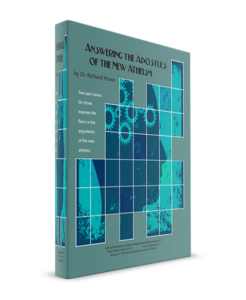Atheism and the burden of proof.
By Richard Playford
When someone makes a claim about the world, if they want to convince others, they are required to provide justification for that claim. This is not a contentious or strange idea, but what does this mean for atheism? Is atheism a belief and does it require justification? In this article I will show that atheism is a belief about the world and that it does require a justification in the same way that theism does.
When exploring this topic the most important thing to do is to define our terms clearly. Traditionally theism, agnosticism and atheism were seen as the three positions that one could hold towards the existence of God. Consider the claim “God exists.” We have three options that we could take toward this claim. We can endorse it and agree that God exists. We can deny it and say that God does not exist. Or we can neither endorse it nor deny it and claim not to know (or care). These, in theory, are the only three options (although I will come back to this later). The affirmation that God exists is called theism. The denial of God’s existence (the claim that he does not exist) is what is traditionally called atheism. We find this definition confirmed in the Stanford Encyclopedia of Philosophy: “‘Atheism’ means the negation of theism, the denial of the existence of God.”[1] Not knowing whether God exists is traditionally called agnosticism; again, we find this definition confirmed in the Stanford Encyclopedia of Philosophy: “‘Agnostic’ is more contextual than is ‘atheist’, as it can be used in a non-theological way, as when a cosmologist might say that she is agnostic about string theory, neither believing nor disbelieving it”[2]. Not caring whether God exists is traditionally called apatheism.
If we accept these definitions, then it seems clear that both the theist and the atheist have a burden of proof. Someone cannot simply assert that because there is no evidence for something it must therefore not exist. This does not follow because it suggests that an absence of evidence is evidence of absence. This is not true. Pluto was discovered in 1930.[3] Prior to then, there was no hard evidence that it existed. Did this mean that it did not exist? No! If somebody wants to say that something does not exist then they must provide a justification for that. They cannot conclude that simply because none of the arguments or evidences for a proposition fail, that the proposition is therefore false. The atheist philosopher Kai Nielson agrees and says, “[t]o show that an argument is invalid or unsound is not to show that the conclusion of the argument is false”.[4] This means that, in philosophy, even if all the arguments for a proposition fail, it does not follow that the proposition is false.
One criticism that is often voiced is that proving a negative is impossible; this is not true. I can prove that Santa does not live at the North Pole by going and looking, I can prove that a 30 cm piece of string is not 40 cm by measuring it, and I can show that there are no married bachelors by showing that it is a logically incoherent concept. The same applies for God. If somebody can show that God is an internally inconsistent concept or that it is incompatible with an aspect of the physical world, then this would prove that God does not exist.
Another criticism that is often voiced is that in the case of God an absence of evidence does entail evidence of absence. This criticism is similar to the argument from hiddenness (which is a formal argument against the existence of God to which there are various responses). As such, because this is an actual argument against the existence of God, this criticism does not detract from my argument.
It should be noted that people rarely fit neatly into the categories that I outlined above. Very few atheists claim to know for certain that God does not exist (many theists also would not claim to know for certain that he does). I suspect that it is views like this which lead people to adopt the title “agnostic atheist.” This has been defined in a number of different ways but one definition is “one who does not know for sure if any gods exist or not but who also does not believe in any gods.”[5]The problem with this definition is that it does not give us a complete account of what the person believes. This fails to tell us whether they believe in God’s non-existence (the belief that he does not exist). This is because lacking belief in God is not the same as believing that God does not exist. In general, people who label themselves like this tend to believe that, although we do not know for certain whether God exists, his existence is unlikely. As a result, they must justify the claim that God probably does not exist with a reasonable inductive argument. The lesson, however, is that people must be clear about what they believe and define their terms carefully before entering a conversation, and if they are making a claim about the world, they must justify that claim. We can see that atheism does require justification in the same way that theism does.
Please visit the CAA website:
Resources for Greater Impact:
 ANSWERING THE APOSTLES OF THE NEW ATHEISM
ANSWERING THE APOSTLES OF THE NEW ATHEISM
[1] Smart, J. J. C., “Atheism and Agnosticism”, The Stanford Encyclopedia of Philosophy(Spring 2013 Edition), Edward N. Zalta (ed.), Available athttp://plato.stanford.edu/archives/spr2013/entries/atheism-agnosticism/. [Accessed on 21/05/2013].
[2] IBID.
[3] NASA, “Pluto: Overview”. Available at:http://solarsystem.nasa.gov/planets/profile.cfm?Object=Pluto. [Accessed on 21/05/2013].
[4] Nielsen Kai (1971) Reason and Practice. New York: Harper & Row.
[5] Austin Cline, Agnostic Atheist – Dictionary Definition. Available at:http://atheism.about.com/od/Agnostic-Dictionary/g/Agnostic-Atheist-Dictionary-Definition.htm. [Accessed on 21/05/2013].














Leave a Reply
Want to join the discussion?Feel free to contribute!